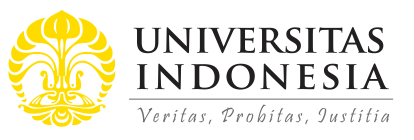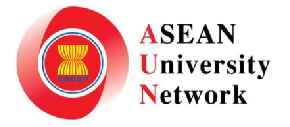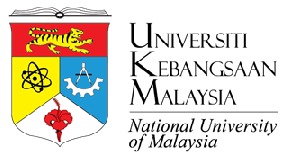
Policies
Open Access Policy
The ASEAN Journal of Community Engagement is an open-access journal promoting global knowledge exchange regarding community engagement. As an open-access journal, AJCE allows readers to read, download, copy, distribute, print, link to the complete text, and access materials freely. It is publicly accessible on the internet, permitting users to copy and redistribute the material in any medium or format and remix, transform, and build upon the content for any purpose, including commercial use (CC BY-SA 4.0).
Publication Policy
The ASEAN Journal of Community Engagement is an open-access journal that provides free access to readers and institutions. There are no fees for manuscript submission, article processing, or publication.
The journal accepts only original manuscripts that have not been previously published or are under consideration elsewhere. All submissions undergo rigorous similarity checks to detect potential plagiarism.
Submitted manuscripts must be written in English. To maintain the journal’s readability and quality, all submissions are subjected to a language and copy-editing process before publication.
To uphold high academic standards, all manuscripts undergo double-blind peer review. The author(s) are responsible for ensuring that their submissions do not contain any identifying information.
Peer Review Policy
The journal implements a peer review policy to ensure the quality of its publications. This policy establishes the framework for the peer-review process, divided into initial review, double-blind review, and the editor's decision.
Initial Review: The editor evaluates submitted manuscripts to determine their suitability for the journal. The manuscripts undergo similarity checks using iThenticate to identify any potential plagiarism. Manuscripts deemed unsuitable or with a high percentage of similarity (>15%) are rejected.
Peer Review: Manuscripts that pass the initial review undergo double-blind review, ensuring anonymity for both authors and reviewers. A minimum of two reviewers is assigned to evaluate and provide recommendations for each manuscript. The editor is responsible for avoiding conflicts of interest during the review process.
Decision: The editor makes the final decision on the acceptability of a manuscript based on the reviewers’ comments and recommendations.
Conflict of Interest Policy
Authors submitting manuscripts to the ASEAN Journal of Community Engagement (AJCE) must disclose all relationships or interests that could influence or bias their work. Even if authors are unaware of potential conflicts, disclosing relationships and interests promotes a transparent process, facilitating an accurate and objective assessment of the work.
The corresponding author must provide a conflict-of-interest declaration during submission.
Copyright, Licensing, and Archiving Policy
Copyright and Licensing
Author(s) retain the copyright of articles published in this journal, granting first publication rights to the ASEAN Journal of Community Engagement. AJCE requires authors to enter into a publishing agreement to obtain rights for publishing the articles, allowing for the transfer of non-exclusive publishing rights to AJCE while the author retains copyright after publication.
The ASEAN Journal of Community Engagement, Universitas Indonesia, is licensed under a Creative Commons Attribution-ShareAlike 4.0 International License. This license allows users to copy and redistribute the material in any medium or format for any purpose, including commercial use, and to remix, transform, and build upon the material. Users must provide appropriate credit by citing the original article or content, including a link to the license and indicating any changes made. Additionally, if the author combines, transforms, or expands upon the original content, they must distribute their contributions under the same license as the original.
Archiving
AJCE contents are archived for perpetual access through the Bepress Digital Common Publishing Platform.
Artificial Intelligence Policy
This policy aims to provide clear and transparent guidance regarding the use of generative AI and AI-assisted technologies for authors, reviewers, and editors in the AJCE journal. In developing this policy, the journal draws on existing guidelines from global publishers, including (but not limited to) the Artificial Intelligence Policy advocated by SAGE and the policy on The Use of Generative AI and AI-assisted Technologies in Writing by ELSEVIER.
Generative AI refers to tools such as ChatGPT or DALL-E that produce content in the form of text, images, or translations. Even if significant changes are made to the content after its creation, it is still considered AI-generated.
AI-assisted technologies, on the other hand, refer to tools embedded in writing applications, such as spell-check in Microsoft Word, as well as AI-powered writing applications like Grammarly. These tools provide suggestions, corrections, and enhancements to self-authored content, which will be classified as “AI-assisted” content.
For author(s)
Author(s) are responsible for ensuring that their submissions meet the standards of rigorous scholarship and research integrity. They should disclose the use of generative AI and AI-assisted technologies in the production of their manuscripts whenever applicable.
Generative AI and AI-assisted technologies should be employed solely to improve the readability of the manuscript, rather than to replace key authorial tasks that require higher-order thinking, such as analyzing literature, critically interpreting data, and drawing conclusions. AI should not be listed as an author or co-author and should not be included in the reference list.
When using generative AI or AI-assisted technologies to produce data in the form of text, figures, images, or artwork, authors must clearly outline how these tools are integral to the manuscript’s research paradigm and methodologies, including information on reproducibility. The methods section should specify the AI model or tool used, including its version and manufacturer. Authors should be aware that generative AI or AI-assisted technologies may produce works that are incorrect, incomplete, or biased. It is the author(s)’ responsibility to ensure that their work avoids fabrication and plagiarism.
For reviewers and editors(s)
The use of generative AI or AI-assisted technologies in the reviewing and editorial processes should avoid any potential confidentiality or copyright issues.
Reviewer should limit the use of generative AI or AI-assisted technologies solely to improve readability and maintain accuracy of their reviews, and not to replace the evaluation and decision making process involved in the review process. Review reports generated irresponsibly may not be considered in the review process or the final decision on the manuscript. Reviewers who suspect undisclosed or inappropriate use of generative AI in a manuscript should raise their concerns with the editor in charge.
AJCE editors do not use generative AI to summarize unpublished research or generate letters related to the manuscript publication process, such as review invitations or decision letters. However, they may use generative AI or AI-assisted technologies to improve the readability and language of published content. All processes are conducted with oversight, and all works are carefully reviewed by the editorial team. If editors suspect or receive reports of undisclosed and inappropriate use of generative AI or AI-assisted technologies in the manuscripts, they will investigate according to this policy and the journal’s publication ethics.







